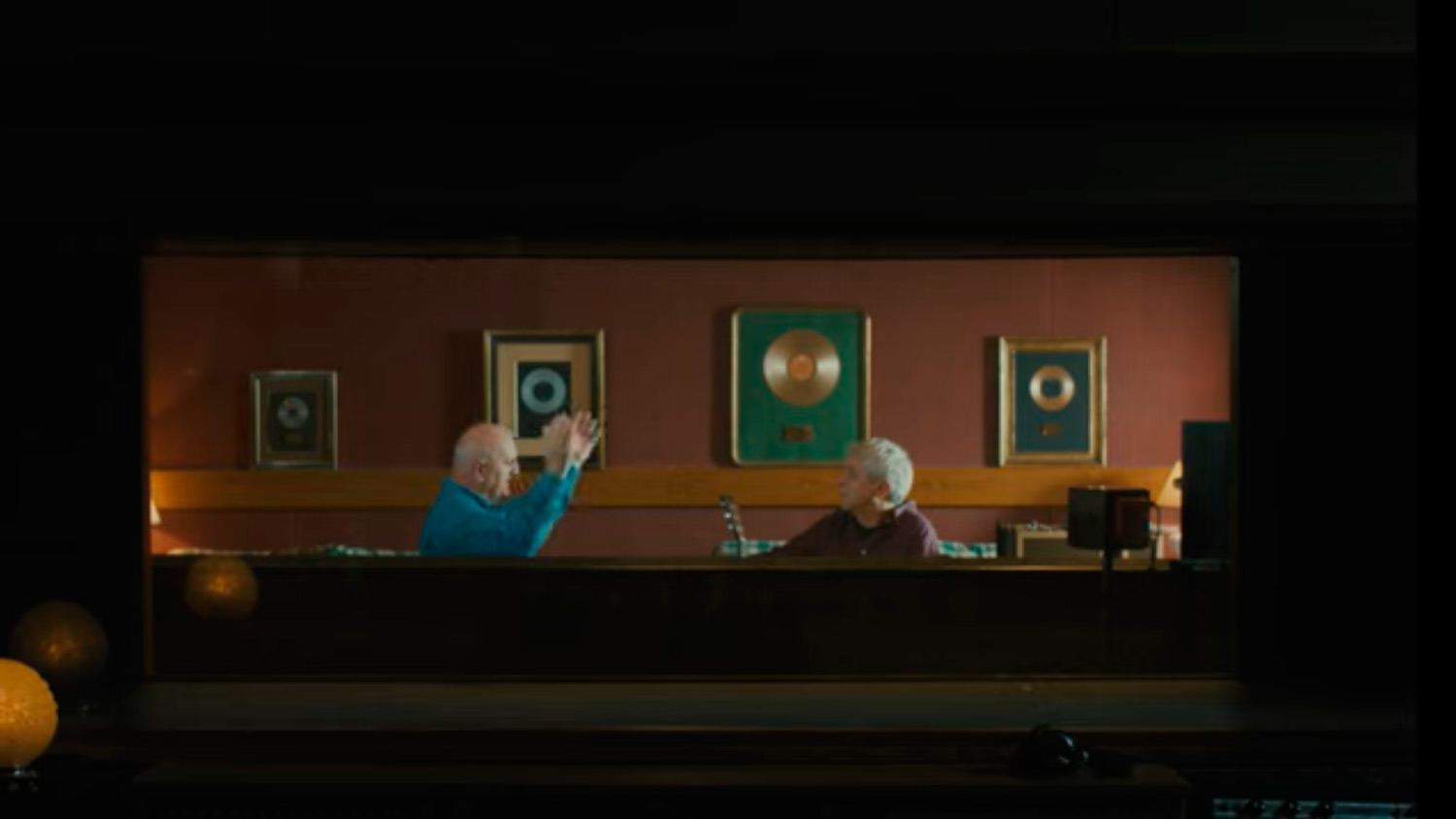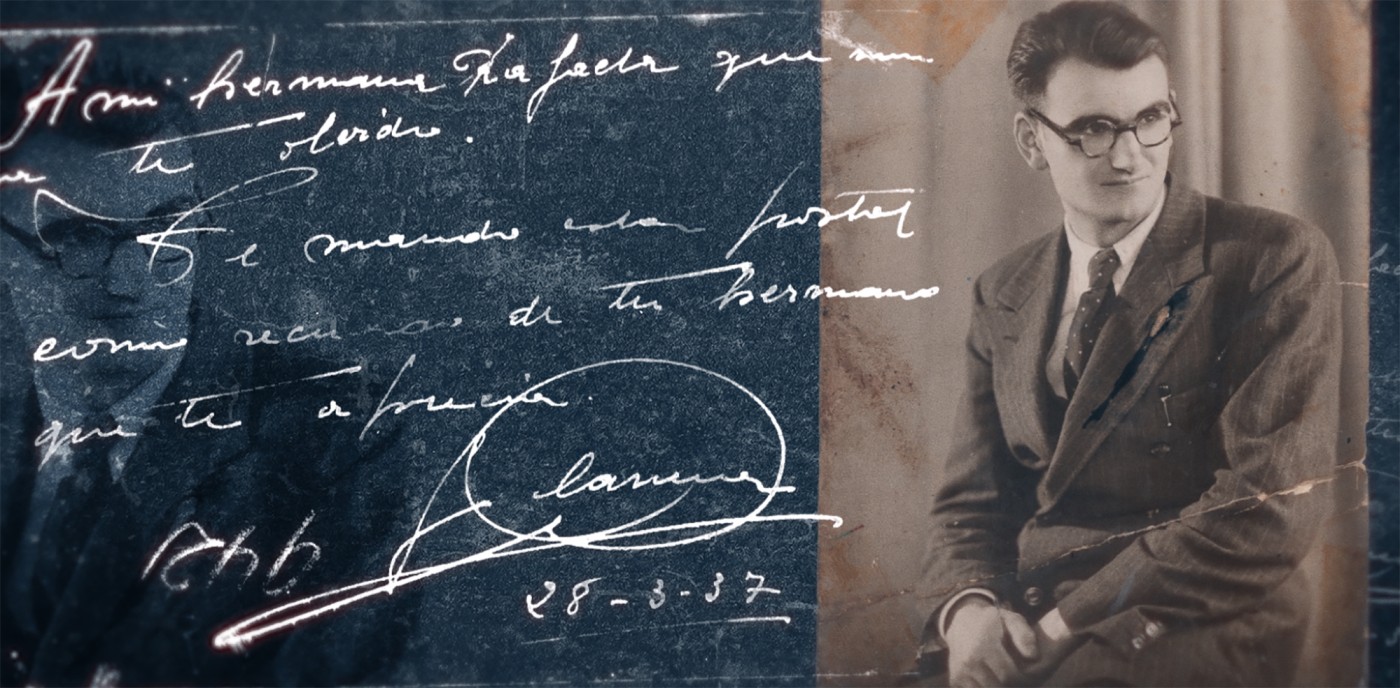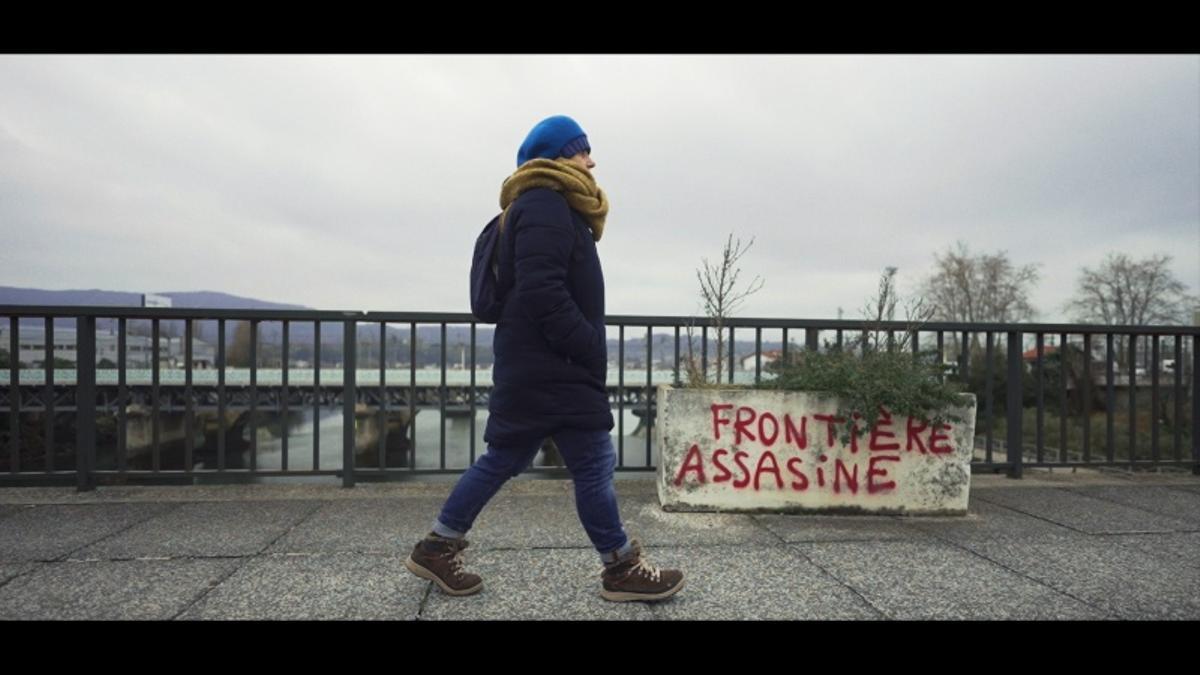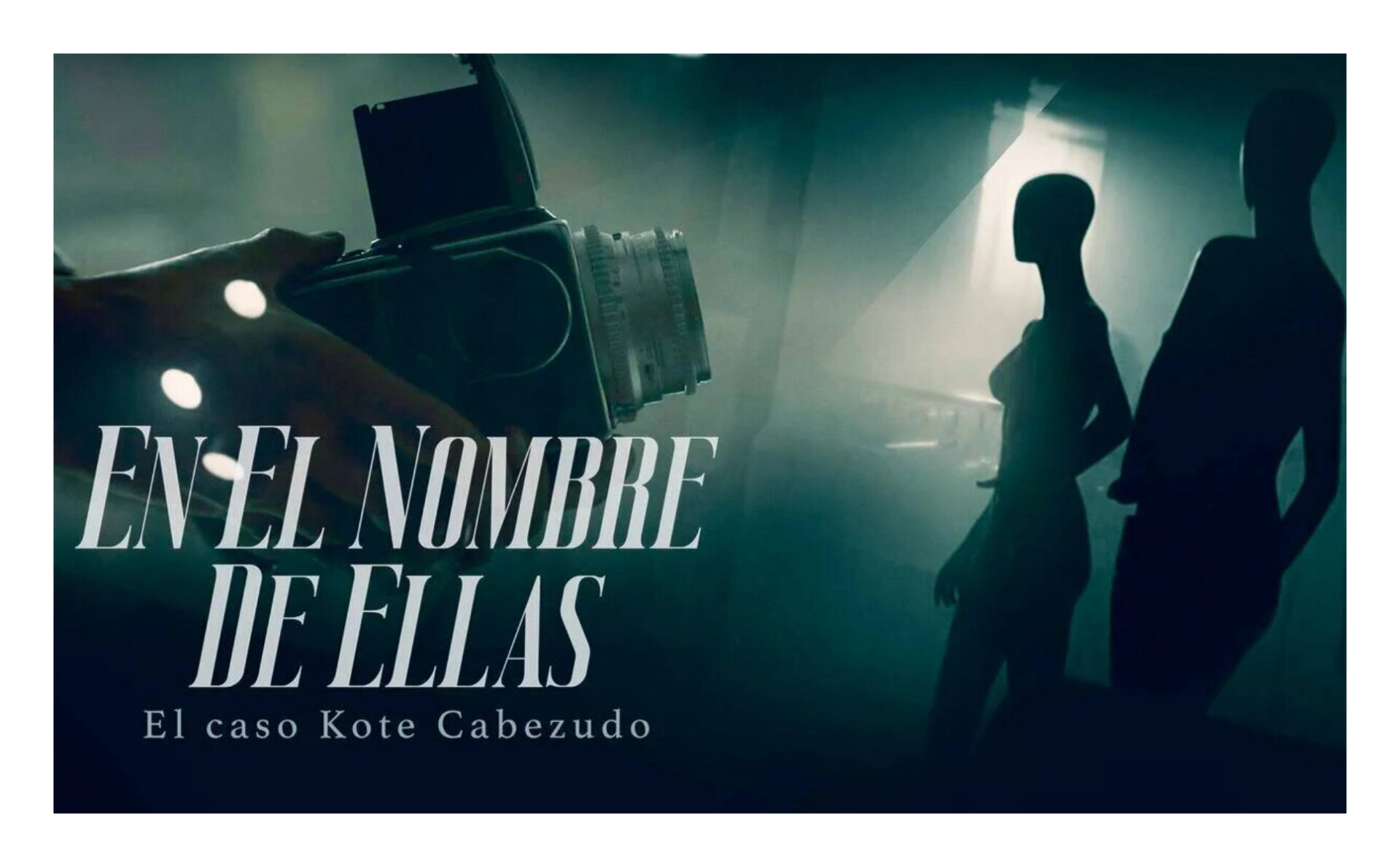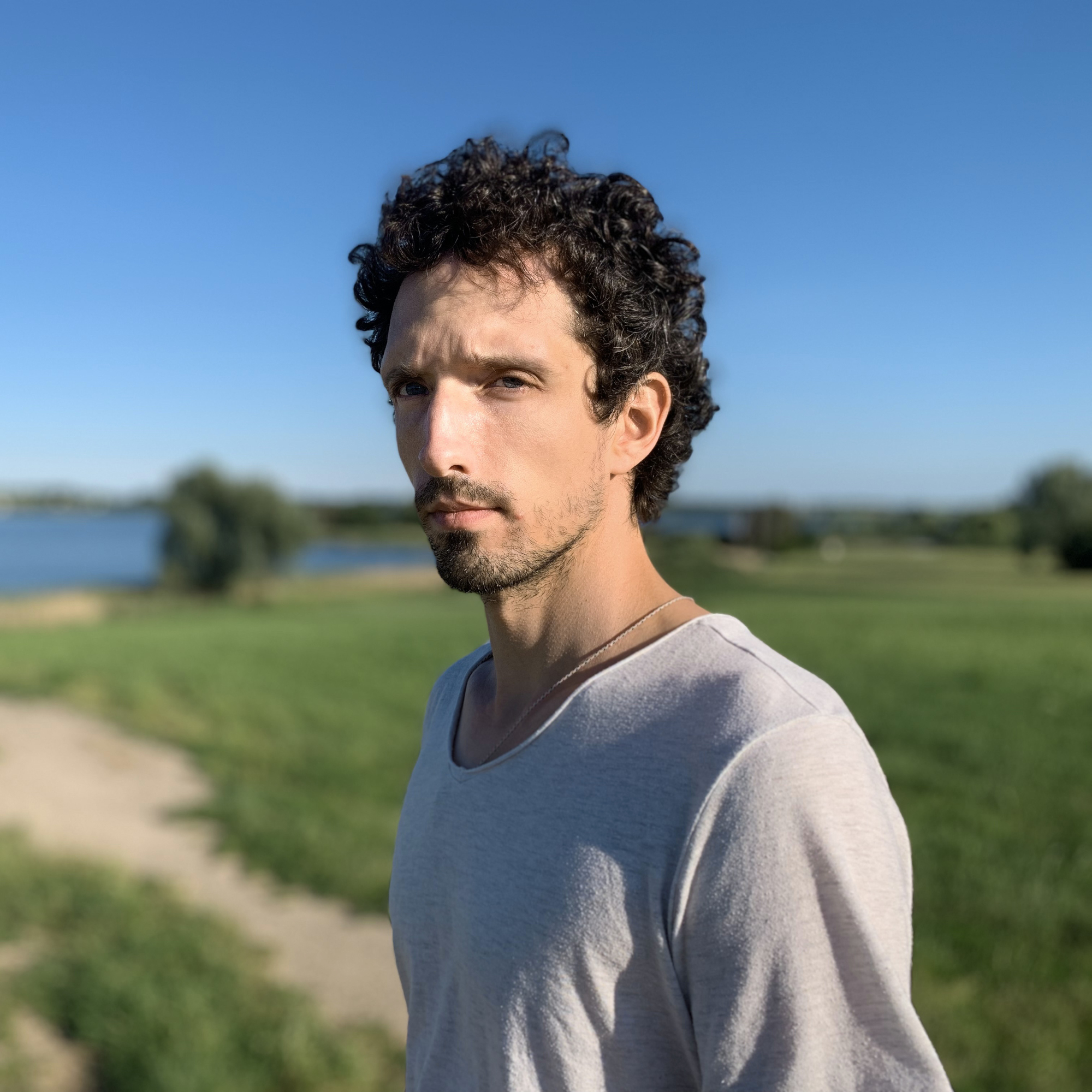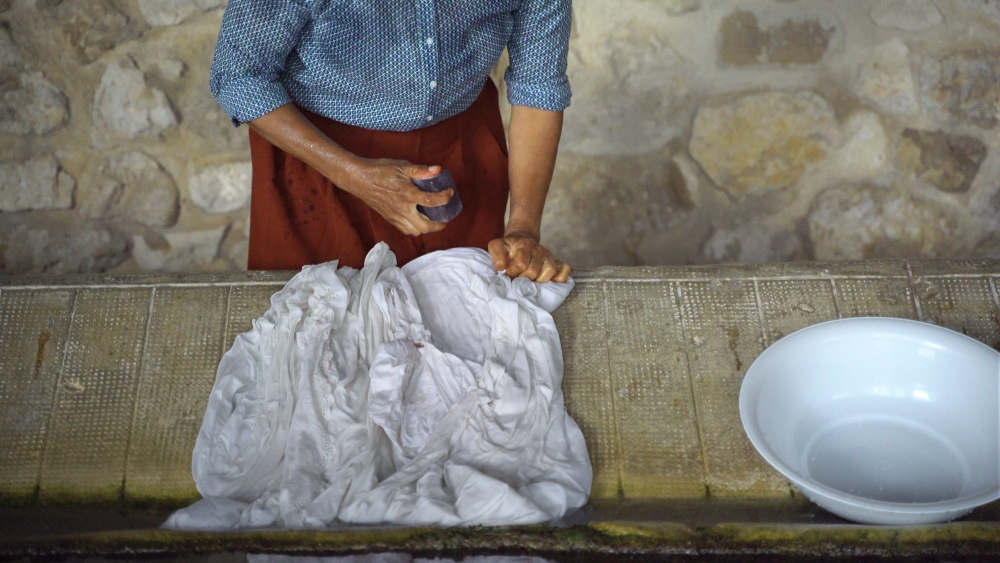"If we don't tell the subject of torture, nobody's going to tell it."
- The author of the documentary Echevarriatik Etxeberriara returns to a new project: The documentary Krask Soinua seeks to address the issue of torture from a scientific point of view. The crowdfounding campaign for production financing started on 8 October.

Why Sound Krask? Where does the title come from?
In recent years, I have read dozens of cases of torture: some of violence, some of psychological torture, in a thousand ways. Some testimonies defined torture in a certain way, while others set different limits. But there was a concept that amalgamated everything in some way, even if everyone explained it in their own way: a certain rupture. The moment you come together as a person. According to the descriptions that I've been stuck in my head over the last five years, you're a porcelain doll that you've fallen to the ground, a cockroach that breaks down the trampled skin, that you feel like you break the trunk of a tree… a thousand senses to say the same thing.
That's the essence of torture: listening to your sound. When the torturer hears that, he does his job. He knows that from there it is his: that you will do whatever he wants, that you will sign whatever he wants. So what amalgamates torture is not the broken arm, the bruised eye or the tough 48-hour interrogation, but the search for that krask. It's destroying the person's personality to dominate it.
The documentary Krask Soinua is part of the story of your father Joxe Iriarte, and then addresses the issue of torture from a much broader perspective. Did you have it clear from the beginning that you had that discursive perspective?
No, and I've given him a lot of laps from what point of view we had to do this research. In the end, I also did this in the previous documentary with Etxebarria: that the questions that have arisen to me be asked by the viewer through me or next to me. I had the idea for a long time to make a documentary about torture, but I had a concrete idea about torture. When I went to the presentation of the project, I was lucky enough to start talking about a lot of other concepts. At home I knew that my father had been in jail, that he had been beaten, what we had read in the book… but we never assumed that that was torture, neither me nor him. In fact, then I realized that there are many things out there: not sleeping, not knowing where you are, always more threats, threats to the family… many things. You realize that that's a manual, and that that goal already existed, and we're talking about Franco. So we realized: we didn't believe it. If we can now suspect that torture occurred in our house, how many people could be in the same situation? And most importantly: What is torture?
I've gone to see Paco Etxeberria, Olatz Retegi, to understand how the research has been done. I've also gone to see Olatz Barrenetxea give me a psychological explanation. By the way, we will also seek at international level what amends torture. It's a starting point for the viewer to be able to make this journey.
It's really amazing: the numbers start dancing, because I already know some people who know they've been tortured who aren't in the government report.
What has been the main motivation to do the documentary, besides knowing a tortured person closely?
To begin with, it is rare to say so, but torture has seemed to me an amazing thing. It's one of my biggest nightmares, and I think it can belong to a lot of people. Being tortured by political militancy, I've always had that fear: you didn't have to end radical militancy if you ever find yourself in a bad place to end up in the police station and that would happen. Then, once I reflected on it, I was fascinated by the book The Shadow of the Walnut by Jon Arretxe. I always had this in my head, and I was drawn to research scientifically. What happened? Since I entered this, I have been followed by cases of torture. Terrible. The people you didn't expect told me. “If that is torture here we are all tortured!” When I asked them if they'd been in the police station, they would say yes and describe me. It's really amazing: the numbers start dancing, because I already know some people who know that they've been tortured and that they're not in the report. So, you ask yourself: [That figure of 5,000] published by the Basque Government, where does it end? You're afraid.
They will start rolling in early 2021, but there are already several significant testimonies in the trailer. What profiles have you searched for for for interviews?
We've been working on this for five years. We've come to expand the project a lot, and in the end we've realized what we have to do like what Darwin did with evolution: Following the imprint of the evolution of Galapagos, you can understand how evolution works around the world. Going back to our topic, here's a very specific case, very researched, that gives us a big sample over time. Looking at what's here, you can see what's going on in the world with torture.
We are not going to go so far to the tortured (which we are going to go), but rather to focus on the investigation of those who value that torture has been carried out and how it works. In other words, we will take as a representative Paco Etxeberria, who will explain the research project in its entirety, to analyze its creation and the figures it transmits. We will continue with Olatz Retegi, who continues to investigate tortured people and torture figures. We will try to understand how this research work is carried out. With Olatz Barrenetxea and Miguel Ángel Navarro we will see how the so-called Istanbul Protocol works psychologically, along with the psychological effects of both physical and modern torture. They will explain to us, holistically, how it works. How many of the most demanding tests that exist today in the world have passed: Istanbul Protocol.
Then, if we can, we'll go to Copenhagen to take cases and compare them to those around the world. It is the most important torture rehabilitation centre in the world.
They have stressed that the phenomenon of torture is not only a phenomenon in the Basque Country, but also affects several Western countries. Where are you going to get to that deep theme?
After the Second World War, the United Nations is established. There is a certain consensus in it with the philosophy of Auschwitz and then with the philosophy of human rights. Then, those who are called “progressive society” decide to write a human rights charter. It determines torture among things that cannot be done. What happens? That's all well and good in the post-war period, but then in all the states, conflicts were ignited. If torture is done as before, marks are left. So they choose to use fear and realize that it's much more effective. From there there is an escalation around the world. What we have in Euskal Herria is, after all, a small sample of that general process. In a society that starts with Franco and moves to a hypothetical democracy, evolution is clearly compared to Darwin's example.
Torture is the dirty war used by the state against movements that can destroy the status quo
What peculiarities has the use of torture had in the Basque Country?
Torture is being applied internationally against any trade union movement, environmentalist movement, and in general against any movement that is intended to destroy. It has been clear here that there have been some movements, more recently focused on left-wing nationalism. However, they are not the only ones, many of those who were tortured had nothing to do with nationalism in the 1980s. So I've seen more of the dirty war being used by the state against movements that can destroy the status quo.
What have you perceived from the practice that has been transformed over the years?
That's one of the things that you'll see throughout the documentary. As we have not yet done so, we are referring to suspicions. But we've seen that psychological torture has increased and physics has decreased. There are fewer cases like Unai Romano. But that is also causing much more serious psychological consequences, especially because of how difficult it is to measure it and because of what we don't know.
Starting on 8 October, you will launch the crowdfounding campaign to finance production. What budget do you need and what do you expect?
If we don't count, nobody will tell. The motto of our campaign will be “Tell us,” and I would like to make it clear. In fact, there are other stories to have, like Patria. The existence of these versions is healthy as a society, but they have a specific protection. We want to ensure that this project is carried out right now, and the minimum we need is EUR 10,000. The optimum, to make it quieter, would be EUR 30,000. Everything you want to do from there, you already know what it costs to do something in audiovisual format. So the cap is almost in the sky, because the more resources we have, the more we will dignify.
As for the date, we will now see what kind of popular reception you have. I believe that if the people respond quickly and quickly, more people will be encouraged. We have 40 days to get the minimum, but I hope you get it much faster and it's optimal on the same date. Then, if it's superior, better.
Furthermore, the Provincial Council of Gipuzkoa has decided to double the amount of public aid, that is, for each euro invested another will be allocated for this purpose.

What welcome do you expect for the documentary?
This is not a documentary directed either to convinced or to any particular political sector. It is aimed at anyone who believes in human rights. It would be my dream to get to them. In fact, this debate, as is often said, happens to some, but as long as it does not happen to me, it is worse. It is a basis that must go into our principles: if you are in favour of human rights, you must be against torture. Then, if you disagree with all that is said, at least you have to talk about this. It is often said that there are two kinds of people who do not believe and do not want to believe.
Itoiz, udako sesioak filma estreinatu dute zinema aretoetan. Juan Carlos Perez taldekidearen hitz eta doinuak biltzen ditu Larraitz Zuazo, Zuri Goikoetxea eta Ainhoa Andrakaren filmak. Haiekin mintzatu gara Metropoli Foralean.
Projection of the documentary Bidasoa 2018-2023
Where: Martutene prison, Donostia
When: Friday, 22 December, 16:00h
Available as a network: Perfect on the platform
------------------------------------------------
It's Christmas. Friday after lunch. Let us go through the long... [+]
FIPADOC Nazioarteko dokumental jaialdia berriz heldu da Miarritzera. Urtarrilaren 19tik 27ra ospatuko dute, eta seigarren edizio honetan «Italia eta Afrika» izanen dira protagonistak.
Hands have a varied symbology. With hands the world is driven and with strong fists the command is supported. Power also fights with fists, picking fingers and raising hands up. Hands are necessary for those who have always been the losers of life, for that alone has been an... [+]
Lana finantzatzeko diru bilketa abiatu dute; ahalik eta gehien zabaldu nahi dute ikus-entzunezkoa, protagonistak sufritutakoa ezagutarazteko eta torturak salatzeko. Bi arnas kontatzen dira, torturaren eraginez itxi gabe dauden bi zauri: Sorzabalena eta haren ama Maria Nieves... [+]









